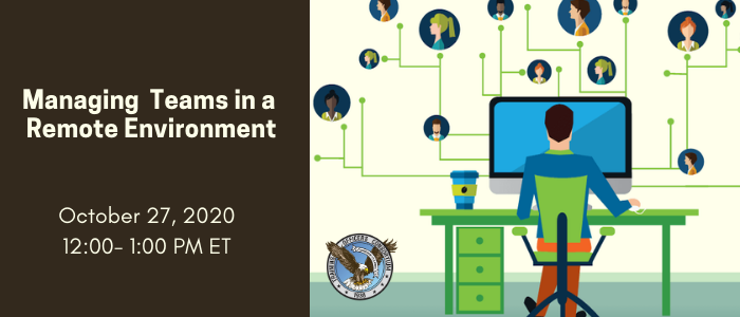Watch the recording.
Download the Further Reading document. (PDF)

In a world where the pandemic has forced distance between us; beyond Zoom fatigue (it’s real!) and ad hoc telework agreements; past the technology hurdles and the internet bottlenecks; out at the end of the fiber optic cable is your team. Managing a team in the old world was hard enough. What about now when you don’t get the social interactions or the non-verbal cues that we could all interpret well enough? What are you doing to make managing your remote team easier?
This session will dive into some evidence-based strategies for managing teams in a remote environment. This was not a new concept for 2020, and there is a significant body of knowledge around what works and what doesn’t work. Join us to discover:
- Common challenges of remote work
- Best practices for supporting your remote team to enable their best performance
- Tips for managing expectations for both your team and your boss
- How to build connections and collaboration into the work
- The importance of establishing behaviors and rituals that build a positive team culture
This program covers topics in the Learning Technologies track.
Executive Core Qualifications (ECQs) covered in this session: Leading Change (Flexibility, Resilience) and Leading People (Team Building) .

Chris King, when not wearing his Chief Technologist hat for TOC, promotes learning interventions that actually improve performance and change behaviors at CEEK LLC. His tools of choice: effective classroom techniques, agile instructional design, the Five Moments of Need™, LEGO® SERIOUS PLAY®, and dash of project management discipline. He is fully committed to CEEK’s mission of waking up zombies in the workforce, helping agencies define and pursue organizational wellness. Chris is a Project Management Professional, a Certified ScrumMaster, a certified 5 Moments of Need™ Designer, and a certified facilitator in LEGO® SERIOUS PLAY®. He is currently working with several teams who have a need to refine and modernize their typical approach to L&D.

